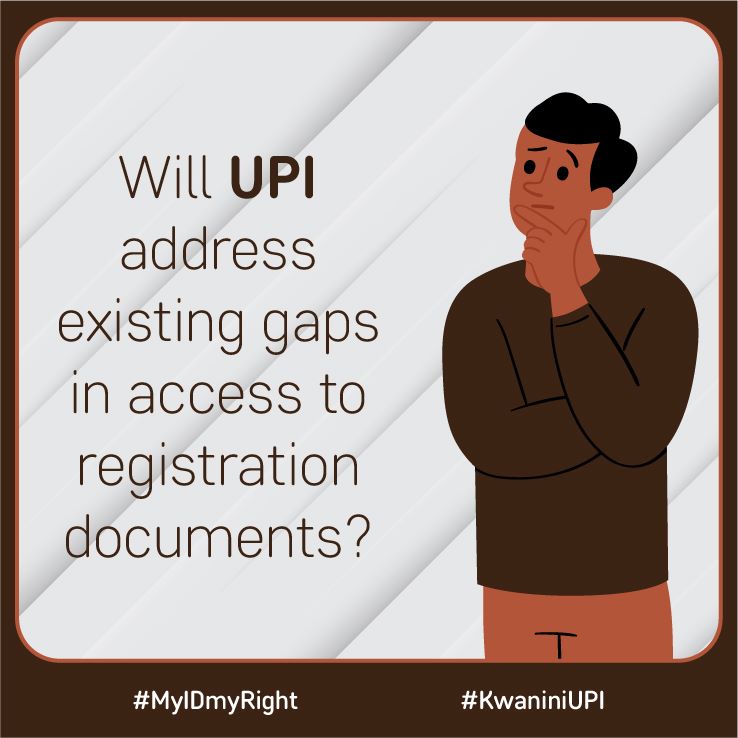Welcome to the Nubian Rights Forum blog! Today, we want to shed light on the Unique Personal Identifier (UPI) proposal introduced by the Kenyan government. As part of a coalition of civil society organizations, we at the Nubian Rights Forum advocate for inclusivity, transparency, and human rights in Kenya. The UPI’s implementation is raising important questions about its potential impact on marginalized communities. Let’s explore why we believe it is crucial to approach this digital identification system with caution and ensure that no one is left behind. #KwaNiniUPI
In 2019, we witnessed the rollout of the controversial #HudumaNamba system, which required extensive personal information, including biometrics and DNA, to generate a unique identifier. Now, the government is proposing another system known as the Unique Personal Identifier (UPI), aiming to digitize our legal identity system. It is vital to learn from the challenges and pitfalls experienced during the #HudumaNamba implementation and ensure a better approach with the UPI.custom dallas stars jersey
jock strap
custom kings jersey
bouncing putty egg
custom dallas stars jersey
keyvone lee jersey
brock purdy jersey
decathlon bmx
penn state jersey
fsu football jersey
custom stitched nfl jersey
jock strap
air jordan 1 low flyease
jordan max aura 4
nike air max 90 futura
Implications for Marginalized Communities:
Our organization is deeply concerned about the potential exclusion faced by communities in Kenya who already experience widespread and systemic discrimination when applying for national IDs. The UPI’s digitization raises the possibility of further marginalization, locking out vulnerable groups from accessing essential services and rights. It is imperative that the government takes proactive measures to address these concerns.
Inclusivity and Transparency:
As part of a coalition of 15+ organizations and advocates, we are calling upon the government to ensure an inclusive, transparent, and human rights-centered approach to the UPI system. We have drafted a memorandum that highlights our concerns regarding the potential implications of UPI digitization. Our goal is to engage in constructive dialogue with policymakers and advocate for a system that respects the rights and needs of all Kenyans.
Learning from Past Experiences:
The rushed implementation of the #HudumaNamba system demonstrated the lasting harm that can be caused when digital ID systems are hastily introduced. Thousands of Kenyans faced the risk of being excluded from accessing IDs and public services. We cannot afford to repeat the same mistakes with the UPI. A transparent and consultative process is essential to ensure that the concerns of all citizens are taken into account.
Envisioning an Equitable Future:
At the Nubian Rights Forum, we envision a community where everyone has equal and fair access to legal identity documents. The UPI proposal raises significant concerns, particularly for marginalized communities. We believe that the government has a responsibility to address these concerns and ensure that the implementation of the UPI system is inclusive and respects the rights of all Kenyans. By doing so, we can build a digital identification system that truly empowers and uplifts every citizen.
As part of the coalition of civil society organizations, the Nubian Rights Forum remains committed to advocating for an inclusive and rights-centered approach to the Unique Personal Identifier (UPI) system. We urge the Kenyan government to prioritize transparency, inclusivity, and human rights in the rollout of the UPI. By doing so, we can create a system that empowers all Kenyans while safeguarding the rights and needs of marginalized communities. Join us in raising awareness and fostering dialogue about the potential implications of the UPI. Together, we can work towards a more just and equitable future. #KwaNiniUPI
